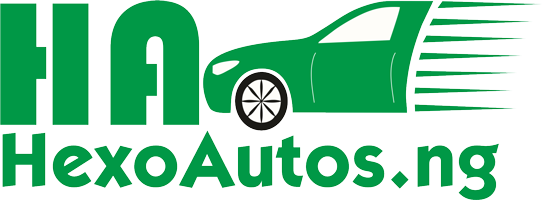Buying a car in Abuja can be exciting but it also comes with risks if you do not know how to spot a stolen car. Many unsuspecting buyers have lost their money because they ignored vital checks. Understanding how to identify a stolen car in Abuja Nigeria will help you avoid fraud, protect your investment, and ensure peace of mind when closing a deal.
1. Check Vehicle Identification Number (VIN):
A Vehicle Identification Number (VIN) is a unique code assigned to every motor vehicle when it is manufactured. The VIN serves as a distinctive identifier for a particular vehicle and is used for various purposes, including registration, tracking recalls, warranty claims, and theft deterrence. The VIN is typically composed of 17 characters, though it can vary in length.
Each character in a VIN has a specific meaning, providing information about the vehicle’s make, model, year, assembly location, and other details. Here’s a breakdown of the VIN structure:
- World Manufacturer Identifier (WMI):
The first three characters represent the manufacturer and the country of origin.
- Vehicle Descriptor Section (VDS):
Characters 4 to 9 provide information about the vehicle attributes, such as the model, body style, engine type, and series.
- Check Digit:
The 9th character is a mathematical calculation based on the other characters, used to verify the VIN’s legitimacy.
- Vehicle Identifier Section (VIS):
Characters 10 to 17 give specifics about the vehicle, including the model year, assembly plant, and production sequence.
Decode VIN using online tools from automotive websites or contact the manufacturer for detailed information.
VIN is typically on the dashboard, driver’s side door frame, or under the hood. Also, check registration and insurance documents.
Read also:
- 21 Questions to ask before buying a used car in Abuja
- Top 10 Original Motor Spare Parts Dealers in Abuja
- 2013 Toyota Camry Price in Nigeria Overview and Features
2. Conduct a Vehicle Title Check on the Car:
Title check ensures legal status and history, confirming the seller’s rights and revealing potential issues impacting ownership or resale value.
Request the title documents from the seller and ensure it matches with the VIN. Stolen cars are sometimes sold with altered or fake titles, so be meticulous in examining these documents.
3. Inspect for Altered VINs on the Car:
Inspecting for altered Vehicle Identification Numbers (VINs) is a crucial step in ensuring the legitimacy and authenticity of a vehicle. VIN tampering, which involves changing or altering the VIN, is illegal and often associated with fraudulent activities, including vehicle theft, odometer fraud, and selling stolen cars.
Here is an expanded explanation of the importance of inspecting for altered VINs for a stolen car in Abuja and how it can be done:
i. Check VIN Locations:
Verify the VIN in multiple locations on the vehicle, including the dashboard, door frame, and engine compartment. Discrepancies between these locations may raise suspicions.
ii. Inspect for Inconsistencies:
Look for signs of tampering, such as mismatched fonts, uneven stamping, or alterations around the VIN area.
iii. Use a VIN Decoder:
Cross-reference the VIN with the vehicle’s make, model, and year using a VIN decoder. This can help identify inconsistencies in the information provided by the seller.
iv. Consult Authorities:
If in doubt, contact local law enforcement or the Department of Motor Vehicles (DMV) to verify the authenticity of the VIN.
v. Legal Consequences:
Tampering with a vehicle’s VIN is a serious offense, and individuals caught engaging in VIN fraud may face criminal charges, fines, and imprisonment.
When purchasing a used vehicle, especially from a private seller, thoroughly inspect the VIN and signs of tampering to ensure a lawful and secure transaction. If any suspicions arise, it is advisable to seek professional assistance or involve law enforcement authorities for further investigation.
4. Examine the Key and Ignition System:
Check the car’s key and ignition system. Stolen vehicles may have damaged or replaced locks and ignition systems. If the key doesn’t fit smoothly into the ignition or if it appears excessively worn, it could be a sign of tampering.
5. Beware of Unusually Low Prices:
Beware of unusually low prices when purchasing a vehicle, as they could be indicative of potential issues or scams. While everyone loves a good deal, prices that seem too good to be true may signal red flags.
Stolen cars are often sold at significantly lower prices to quickly offload them. Research the market value of the make and model you are interested in and be cautious if the asking price is well below the average.
Conclusion:
Identifying a stolen car in Abuja requires a combination of thorough research, attention to detail, and vigilance. Potential buyers must thoroughly check the vehicle’s VIN, ownership title, and physical components to avoid inadvertently purchasing stolen vehicles.
Verify VIN, check ownership title for red flags, inspect the vehicle for a secure and legal transaction.
By following these guidelines, buyers can safeguard against car theft, ensuring informed decisions when buying a used vehicle. Remember, due diligence is key to a safe and satisfactory car-buying experience.
Looking for a reliable car to buy in Nigeria click Here or send a WhatsApp message to HexoAutos @ +2348149754554
